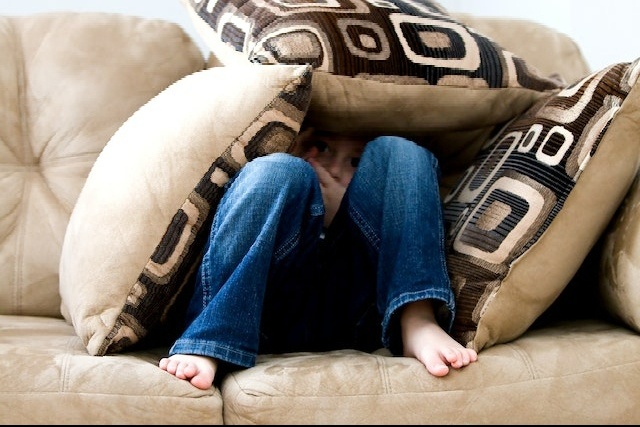What Does Social Anxiety Look Like in Children?

As a parent, you just want what’s best for your child. This means nourishing them with meals that are healthy and well-balanced, making sure they know that they are well taken care of and loved, and providing them with a home that keeps them safe, warm, and dry.
These are just the basic needs that every human has. But parenting goes much further than that. As a parent, you also want to make sure that your child is hitting their developmental milestones, learning what’s right versus wrong, doing well in school, and building relationships with others.
But what if your child struggles to build these relationships with others? You want to see your kids happy and carefree — or at least be aware if something is bothering them.
Let’s dive into social anxiety in children and how it can present itself so you know what to look for.
What Is Social Anxiety?
Social anxiety is a common mental health condition where social interactions can trigger an increase in anxiety in some individuals. People with this disorder will spend time before and during social interactions worrying if they are going to be embarrassed, judged, or rejected by others.
Common Causes
Just like other forms of anxiety, there isn’t one, specific cause of social anxiety. There are several believed factors. These are some of the most common causes of social anxiety in children.
- Abuse
- Bullying
- Family conflict
- Family history
- Meeting someone new
- Personality
- Self-consciousness
- Trauma
Signs and Symptoms
A lot of children show signs of shyness in social situations. But social anxiety extends well beyond just being shy. Everyone can experience shyness from time to time, but not everyone will experience social anxiety. There are many different types of emotional, behavioral, and physical signs and symptoms of social anxiety, especially in children.
 Behavioral and Emotional
Behavioral and Emotional
These are some of the most common behavioral and emotional signs and symptoms of social anxiety:
- Avoiding certain people, places, activities, or events
- Concern that someone may notice you’re anxious
- Criticizing yourself negatively when in social situations
- Crying
- Expecting the worst-case scenario
- Fear of being misjudged or negatively judged
- Fearful your physical symptoms will show or cause you to humiliate yourself
- Not letting go of a parent or primary caregiver
- Intense fear of talking to strangers
- Refusal to speak in social situations or interactions
- Temper tantrums
Physical
These are some of the most common physical signs and symptoms of social anxiety:
- Blushing
- Difficulty breathing
- Digestive issues
- Mind blanks
- Muscle aches and pains
- Shaky voice
- Sweating
- Trembling
- Quickened heart rate
How to Seek Help
If you suspect that your child is struggling with social anxiety, it’s important to know that they’re going to be okay. Social anxiety is a lot more common than one may think. While seeking additional support is always recommended, there are things you can do from the comfort of your home to get a kickstart on working with your child.
You can sit down and talk with them about how they’re feeling. Let them know that you’re there for them however, they need you to show up to support them. If they’re nervous about a certain situation like attending school or hanging out with a friend, you can talk them through their day, giving specific details so they feel a little more at ease of what they can expect. You can also help them practice certain social interactions so that they feel prepped and ready to go before they actually have to be in a social situation on their own.
If you want a little extra help, working with a licensed and trained mental health professional may be exactly what your child needs. A therapist will be able to talk with your child on one to determine the root cause of their social anxiety and help them work through the signs and symptoms they’re struggling with. Reach out today to set up a consultation for child therapy or anxiety treatment.
